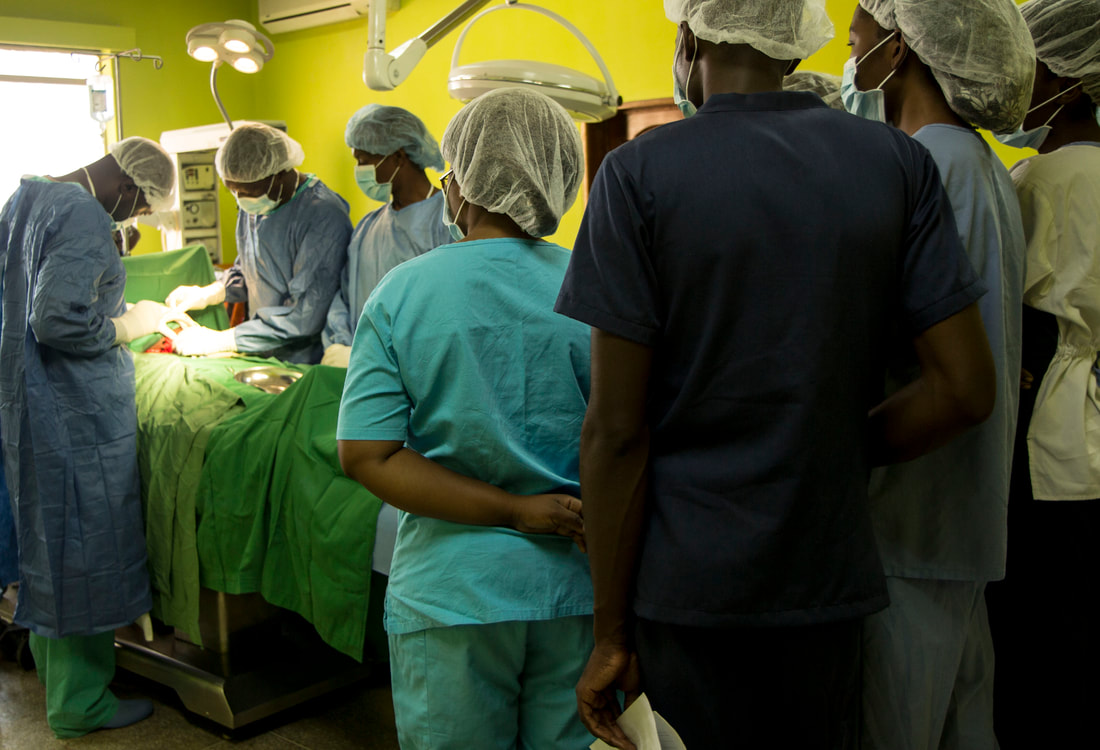|
Human Resources for Health has just published my first scientific article about something very important in Global Surgery. I would like to tell you the story about how I got involved. When I found the project I want to tell you about I was looking for a research assignment to work on to expand my understanding of public health. At the first meeting the principal investigator asked me how much I knew about global surgery. I remember, vividly, looking at him the same way I used to look at my biochemistry textbooks —lost and perplexed. Dr Jakub Gajewski, nevertheless, slowly took me through the COST-Africa project, and what it set out to achieve. This was the first time I learned that surgical services in many parts of the world are safely delivered by people who do not have a physician training background. I learned that the project worked in Malawi and Zambia and that in Zambia —among other activities— it tested the feasibility of surgical supervision provided by specialists to non-physician clinicians, called medical licentiates, practicing a wide range of surgery in rural hospitals. Any research project I had worked on prior to this was either lab-based or clinical, which meant that this was all very new to me. After discussing some ideas with Dr Gajewski, we concluded that I would be doing qualitative analysis exploring the dynamics between the supervisors and the medical licentiates they were visiting every three months to mentor and supervise them. I had the task to describe how the supervising surgeons changed surgical capacity in the district hospitals they were overseeing, and to observe effects on individual, hospital and system level. As one could imagine, for a second year medical student whose biggest concerns revolved around memorizing intracellular signalling pathways, this was not exactly my comfort zone. However, I was very excited to get started. The nature of the data collection process was particularly interesting to me. Analysing personal interviews with members of the healthcare workforce meant that I was dealing with experiences, rather than numbers; every person interviewed had a story to tell. I found myself reading through the interviews over and over again, each time from a different and deeper perspective. This was a crucial part of the process, as this project aimed to utilise many different members of the workforce to explain changes caused by the project. This was the first time I learned that surgical services in many parts of the world are delivered by people who do not have a physician training background, yet they lack supervision and training opportunities and in many cases practice in isolation. Understanding the benefits and set-backs experienced by participants of this intervention, from the medical licentiates to the supervising surgeons, truly helped me capture the potential role that supervision may hold as part of the solution. On both individual and institutional level, I was able to holistically understand why this integrative model provides hope for a long-term solution rather than a temporary change. The problem to tackle is the lack of surgical specialists in majority of district hospitals in rural parts of Africa, and it is not a problem that will go away in the foreseeable future. I certainly feel fortunate to have been able to play a role in extracting and configuring some of the results of this remarkable project. I hope to see this model develop further into a viable solution that enhances surgical capacity across rural areas. Although this study focuses on district level hospitals, I personally think that it provides a lesson for everyone in the global community: surgeons, and leaders in general, can offer so much more to communities than just their technical expertise. Enhancing teamwork, communication and individual confidence are just some of the qualities that I hope to implement in the future as a healthcare professional. I am truly grateful for this year-long journey with the fantastic SURG-Africa team, and I sincerely look forward to working in the field of global surgery once again. Nasser Monzer is a RCSI medical student who volunteered with SURG-Africa during 2018-19, to gain research skills. He is co-author of Supervision as a tool for building surgical capacity of district hospitals: the case of Zambia, our latest published paper that you can find in Publications. This paper is the cornerstone of SURG-Africa. It demonstrates the impact of the role that specialist surgeons can play within the supervision model implemented in COST-Africa, bringing their expertise to rural populations, where such surgical competence would otherwise be inaccessible. You can also watch a video about what the SURG-Africa intervention looks like based on the lessons learned described in our latest paper:
1 Comment
|


 RSS Feed
RSS Feed